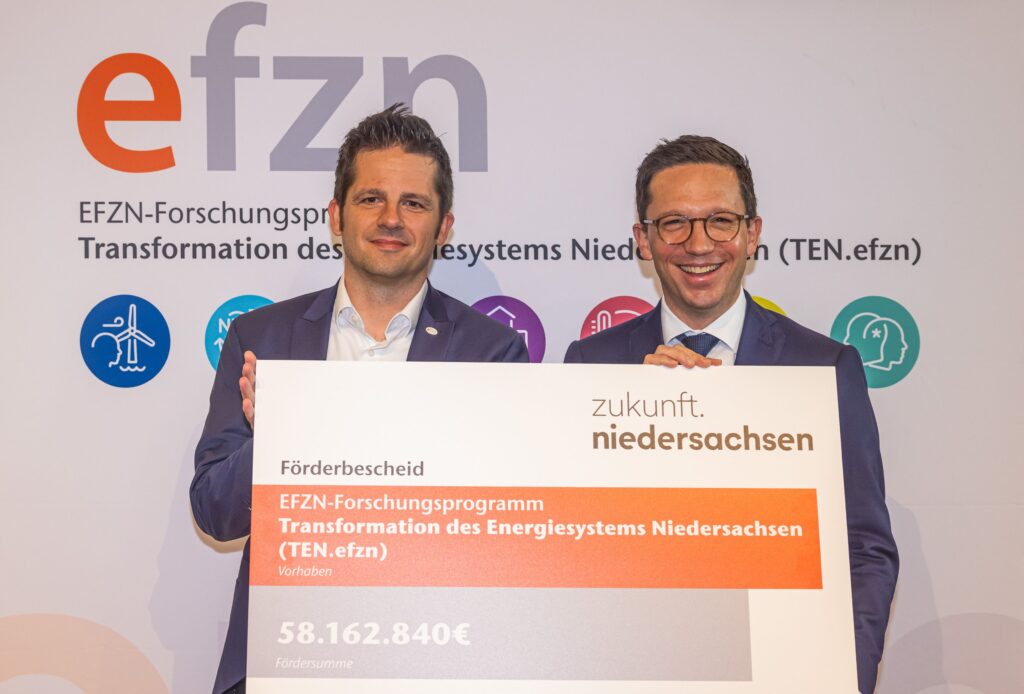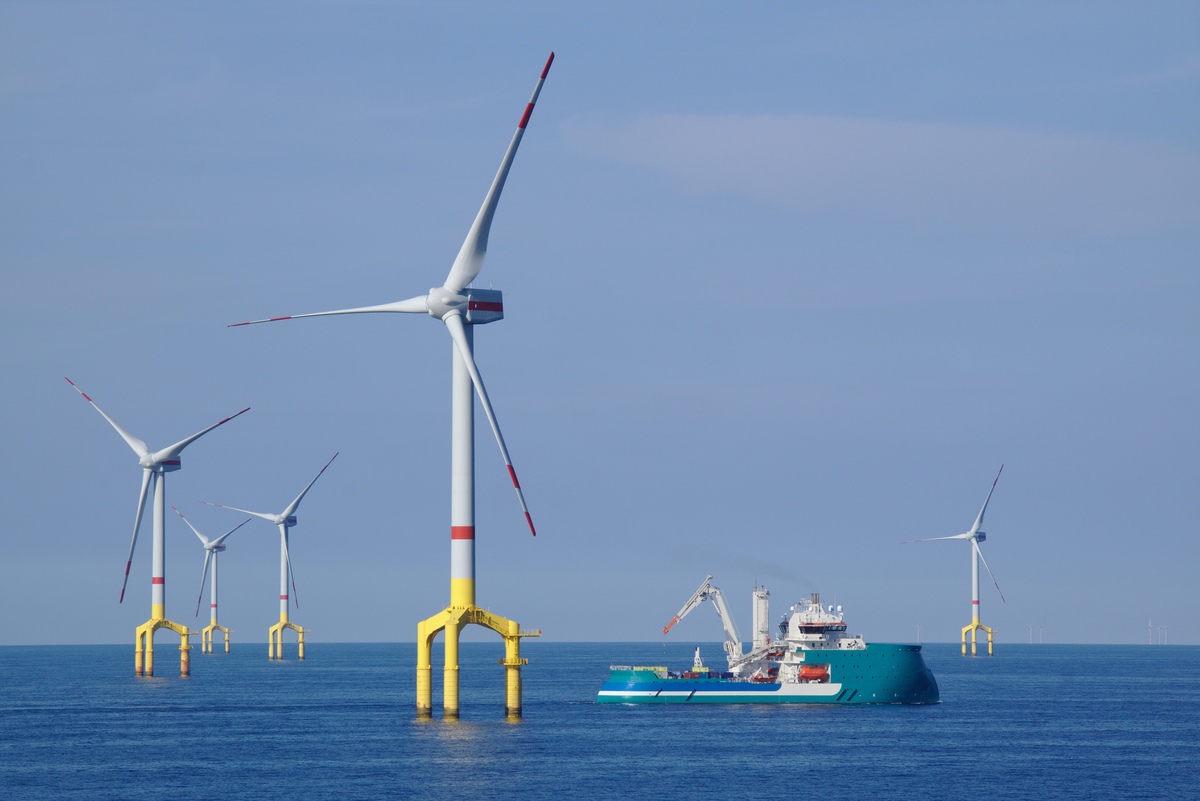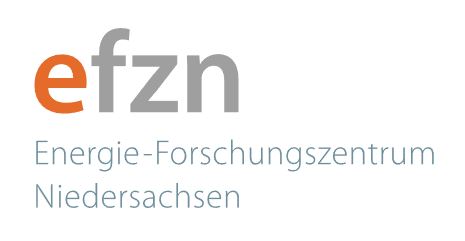The transformation of our energy system towards 100 percent renewable energy needs good ideas and innovations from science in order to become more and more efficient and ensure a reliable supply. The Energie-Forschungszentrum Niedersachsen (EFZN, Energy Research Center of Lower Saxony) combines different research projects throughout the state to achieve this goal. The EFZN will receive 58.2 million euros for a new research program.
Over the next five years, more than 180 researchers at 15 universities, universities of applied sciences and non-university research institutions in Lower Saxony, as well as other partners from other federal states, will be researching solutions for the energy system of the future as part of the “Transformation of the Energy System in Lower Saxony” (TEN.efzn) program. TEN.efzn is funded with around 58.2 million euros from Zukunft.niedersachsen. The projects are bundled via the Energie-Forschungszentrum Niedersachsen, a joint scientific center of the universities of Braunschweig, Clausthal, Göttingen, Hannover and Oldenburg.
Structured into six closely interlinked research platforms, the TEN.efzn program combines the essential strengths of energy research in Lower Saxony and also opens up new innovative fields of research. A unique feature is that the technical and scientific energy research is interlinked with the social transformation research, thus creating a broad perspective for practical implementation. The aim of the program is a strategic further development and re-profiling of energy research in Lower Saxony by 2030.
The six pillars of TEN.efzn
The six specialized research platforms will address the various dimensions of the energy transition from both a technical and scientific as well as a social perspective.

Axel Herzig
Presentation of the funding notification by the Minister of Science, Falko Mohrs, to the EFZN Board Spokesman, Prof. Dr. Sebastian Lehnhoff (left).
In the real-world laboratory 70 GW Offshore Wind, the planned expansion of wind energy in the German North Sea is being examined holistically in order to develop strategies for a sustainable expansion of offshore wind power.
The State Research Training Group Hydrogen and Hydrogen Derivative Ammonia is dedicated to research into ammonia as a potential energy carrier of the future, while the research platform Trustworthy Digitalization of Safety-Critical Energy Systems is investigating how to strengthen end-user trust in an increasingly digital and automated energy system.
The research platform Geoenergy Systems demonstrates the use of underground geo-reservoirs for sustainable energy supply and the research platform Heat concentrates on the development of innovative heat pump technologies for buildings and industrial applications. At the same time, the research platform Social Dynamics of Energy Transformation examines the societal challenges of energy system transformation and develops approaches for a socially supported transformation.
“
The energy transition is a social issue.
Prof. Dr. Berthold Vogel
Prof. Dr. Berthold Vogel of the Soziologisches Forschungsinstitut Göttingen (Sociological Research Institute) at the University of Göttingen emphasizes the special socio-technical research approach of the EFZN: “A glance at the current political and media debates shows that the central challenges of the energy transition are by no means only in the technical field but particularly in the social field. The energy transition is a social issue. The research programme will develop decisive solution proposals for this question.”
The six research platforms are linked by a novel transfer system that promotes exchange between science, business, politics and civil society. This is intended to ensure that research results are implemented in a practical way, that specialists are trained and further educated, and that the development of innovations and start-ups is supported.
Institutions involved in the TEN.efzn research program
- University of Oldenburg
- Institute of Engineering Thermodynamics (DLR-TT)
- Institute of Networked Energy Systems (DLR-VE)
- Fraunhofer Institute for Wind Energy Systems (IWES)
- University of Göttingen
- University of Hannover
- Helmholtz-Zentrum Hereon
- HAWK University of Applied Sciences and Arts
- Institute for Solar Energy Research in Hamelin
- LIAG Institute for Applied Geophysics
- OFFIS
- National Metrology Institute (PTB)
- Sociological Research Institute (SOFI) at the University of Göttingen
- Steinbeis Innovation Center energieplus (SIZ)
- Braunschweig University of Technology
- Clausthal University of Technology
- University of Vechta



